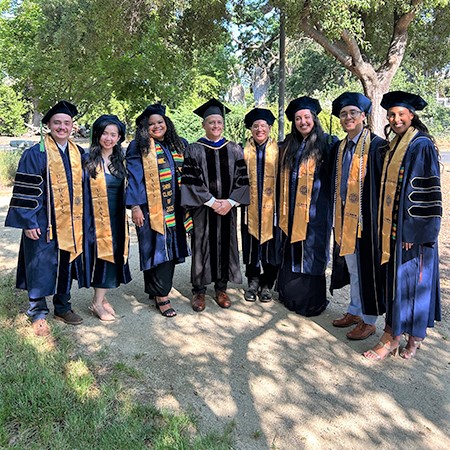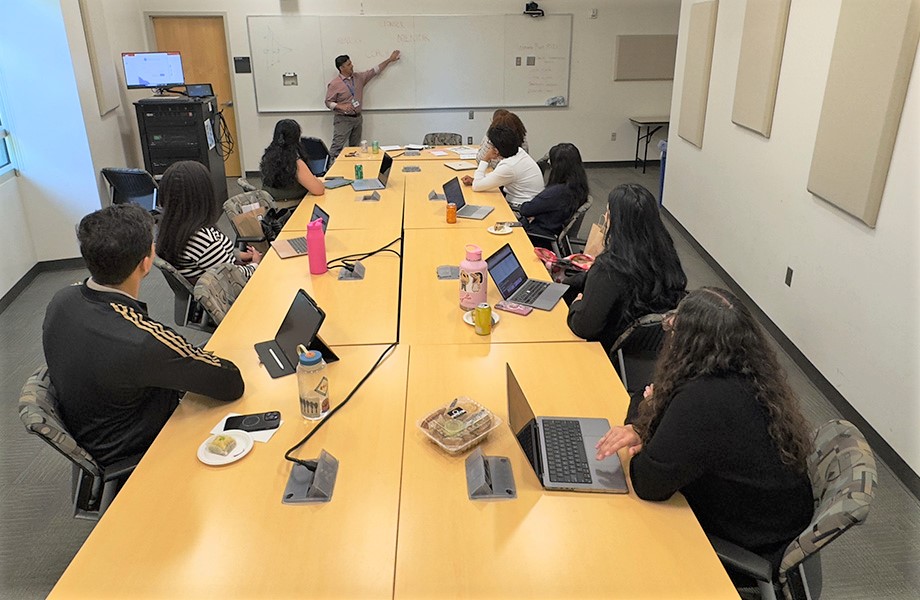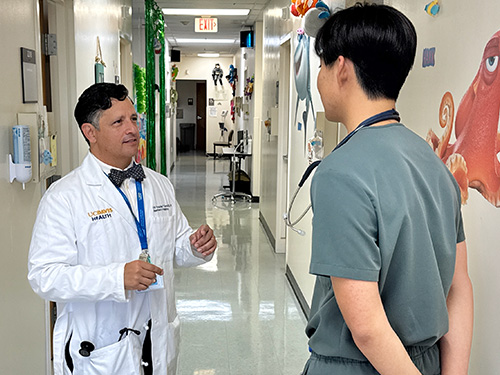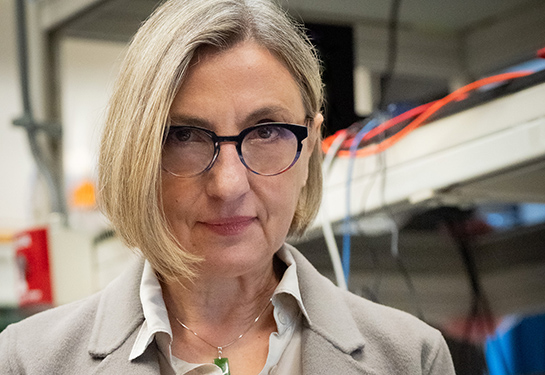Pediatrics professor who encourages students to have ‘passion for their mission’ receives teaching honor
Erik Orlando Fernandez y Garcia inspires learners to become advocates for their medically underserved patients
Erik Orlando Fernandez y Garcia has held many teaching roles in his 20 years with UC Davis Health and the UC Davis School of Medicine. He’s taught nutritional genomics to researchers, clinical skills to medical students and the principles of community-based primary care to undergraduate and graduate students, just to name a few.
His talent for training and guiding the next generation of physicians has earned Fernandez y Garcia a well-respected honor: He recently received the UC Davis 2025 C. John Tupper Prize for Excellence in Teaching.

Fernandez y Garcia has been an active teacher in countless areas. He’s dedicated to graduate medical education with “bedside teaching” in both the newborn nursery and outpatient clinical sites and has spent years focusing on health services research. He has connected hundreds of medical students and residents to local organizations to learn more about maintaining optimal health for all children in the Sacramento region, but especially those in underserved areas.
Fernandez y Garcia — who was born and raised in Sacramento — is also the academic coach for TEACH-MS, the four-year program for medical students who aspire to become doctors in undeserved, urban settings. TEACH-MS is short for Transforming Education and Community Health for Medical Students. Fernandez y Garcia trains students how to better connect with their patients and become fierce advocates for them.
We caught up with Fernandez y Garcia to learn more about his passion for teaching and mentoring students and residents on how to serve the underserved.
What does it mean to be awarded the C. John Tupper Prize?
It is a great honor. Mostly though, I’m happy that students who have a passion and mission for service to the underserved can see someone being acknowledged who also shares that passion and mission — and for many of them, a similar background.
How does being a Sacramento native influence what you teach and coach?
I came to UC Davis to help teach people who would be learning and serving in my community. So, being here influences every part of my teaching and coaching. For example, I tell all of my learners that they are learning to be doctors ‘by caring for my friends and family’ and that that is a great responsibility.
What’s your priority as an academic coach, and how do you go about that?
When I meet my new cohort of medical students every year, I tell them that my job as a coach is to help them identify their goals and then help them achieve those goals, all while keeping their passion for their mission intact, if not stronger.
Do you have a certain philosophy or foundational beliefs that you strive to bring into the learning environment?
I practice under the paradigm of Cultural Humility, which has three tenets (as defined in the original published definition):
- Lifelong commitment to self-evaluation and self-critique
- Redressing the power imbalances in the patient-physician dynamic
- Developing mutually beneficial and ‘nonpaternalistic’ clinical and advocacy partnerships with communities on behalf of individuals and defined populations
What do you tell your students about the importance of the patient-doctor relationship, particularly when it comes to trust?
The foundation of Cultural Humility is trust. Patients and their families must trust that we have their best interests in mind when we treat them. Providers must trust that those we serve are invested in what we advise. Like any other deep relationship, without trust, there is no efficacy.
Medicine is changing fast, especially on the national policy level. How does this affect what, how or why you teach?
There are challenges to our model of the “medical home' for organizing care, especially with regard to access. These challenges are especially problematic for underserved communities who already face increasing barriers to optimal health. My teaching has to involve how to navigate the myriad and siloed patchwork of systems to help patients and families do the best that they can in this environment. I also teach students to remain a positive light for these patients and families despite what are seemingly disheartening and insurmountable obstacles.





